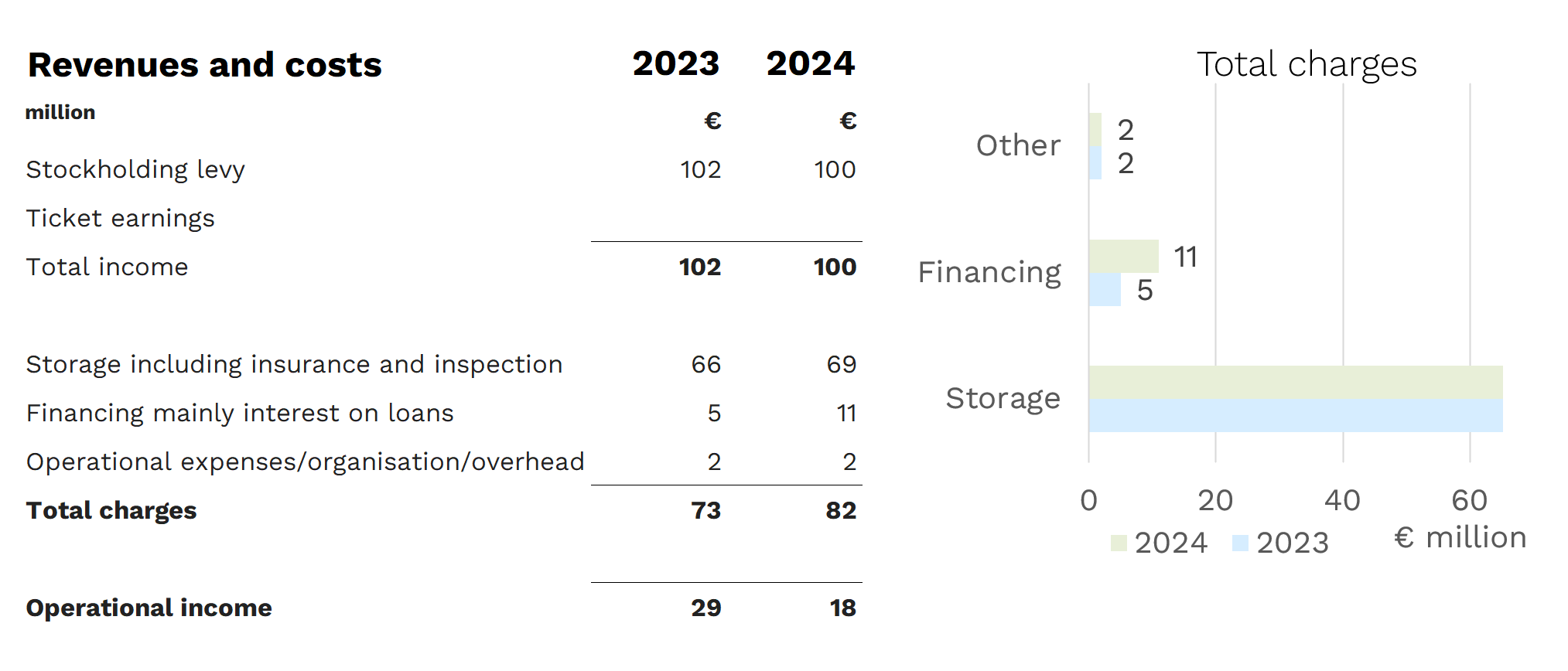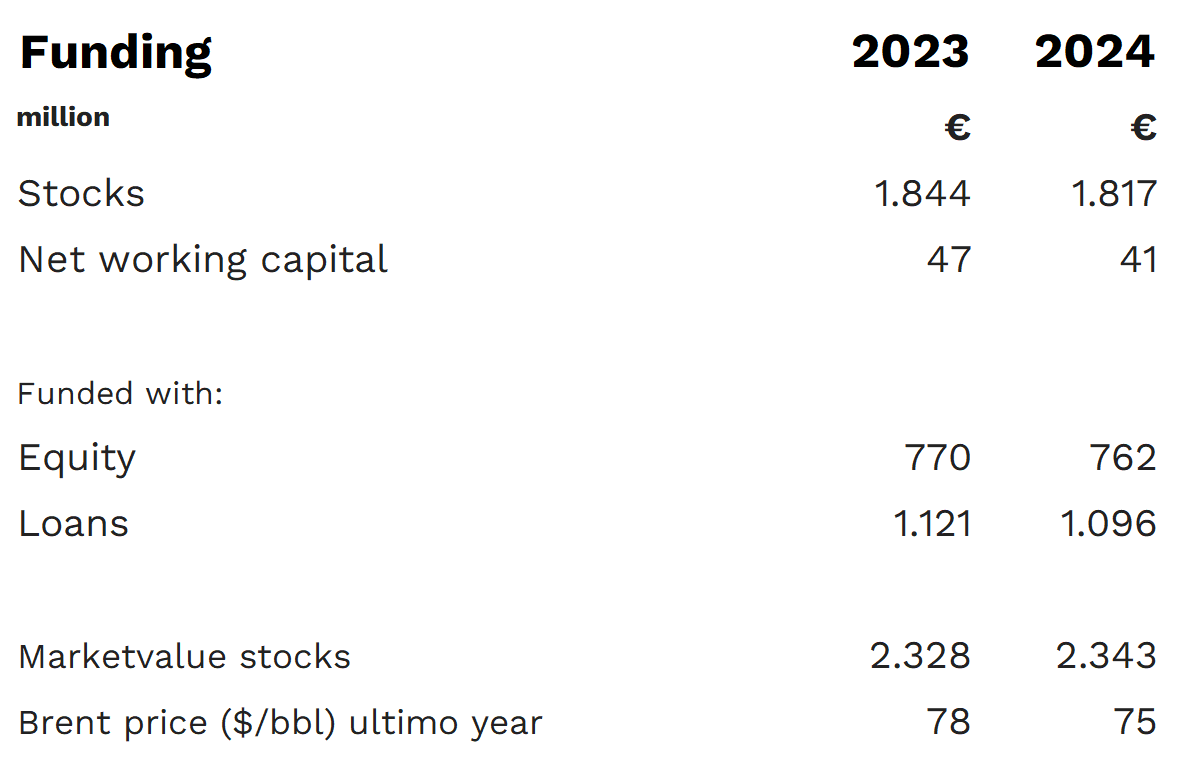
Financial Policy
Our stocks and operational costs are financed with a stockholding levy and loans with the Dutch state, offering a solid financial position.
Financial policy
COVA is a not-for-profit foundation. We fund our oil stock purchases with loans we take out from the Ministry of Finance under the terms of treasury banking. The Ministry of Climate Policy and Green Growth guarantees the loans contracted up to €1,465 million. This offers sufficient scope for funding the purchase of the necessary stocks. The law provides that the State will be liable for any debts of COVA which remain after its winding-up as a legal person (Section 25 of the Petroleum Products Stockpiling Act (Wva)).
COVA’s operating costs are funded from a stockholding levy on oil products. The Wva has set the stockholding levy at 0.8 cent per litre, and this is included in the fuel price at the pump. The income which COVA receives therefore moves in line with the annual consumption of gasoline, diesel and LPG.
Costs and revenue

COVA’s operating costs are mostly costs of leasing storage facilities. In addition, there are costs of inspection, insurance, logistics and interest payments on the loans outstanding with the government. The organisation’s expenditure consists of staff costs, accommodation costs and IT. COVA aims to use operating surpluses to pay off loans. In this way, we prevent a situation in which future generations have to bear the costs incurred at present.

COVA’s stocks are valued at historical cost, where necessary adjusted to a lower market value. These stocks represent more than 90% of COVA’s balance sheet total.
Financial statements
Financial statements We publish our financial statements online. As well as presenting the operating figures in these statements, we describe the developments on the (international) oil and oil storage markets and explain how they were taken into account in our risk analysis. We also take a detailed look at COVA’s stockholding overview and governance. The financial statements are submitted for approval to the Minister of Climate Policy and Green Growth.

2024 Consolidation and strengthening the foundation
Energy security in relation to oil and oil products remains important for the Netherlands. Together with the Ministry of KGG, COVA is working hard to improve the foundations for this. We are pleased that the Ministry intends to modernize the current stockholding law which dates from 2012. Thus providing room for better long-term planning. With important decisions on the relocation and renewal of parts of our product stock, our storage portfolio remains future-proof. COVA’s financial position remains robust despite increased costs due to inflation and higher interest charges. Since August 2024, COVA has renewed its website for better information provision, including by publishing the oil dashboard. This makes the most important short-term developments in the oil market accessible to a wide audience in the Netherlands. Read more in our 2024 annual report.
WNT register
The financial statements contain a clarification of the annual figures and information in the context of the Senior Executives in the Public and Semi-Public Sector (Standards for Remuneration) Act (WNT). The WNT data forms an integral part of the annual financial report and accounts on which an audit opinion is issued. As a legal person with a statutory task, COVA is subject to the WNT and makes its data for previous years publicly accessible.
